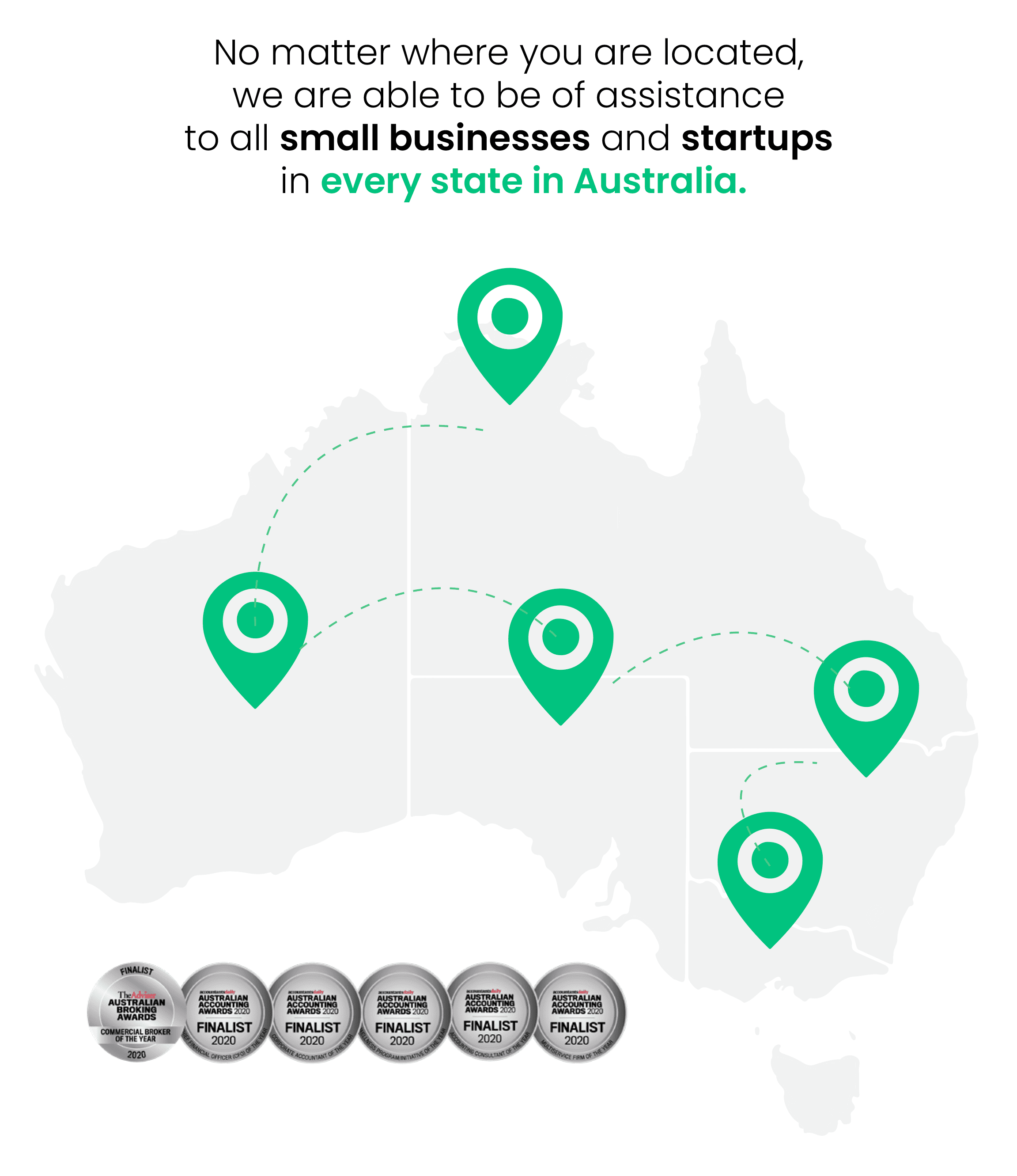Negotiating and Resolving ATO Debt
As part of the government backing up a small business, if you have ATO debt that has accumulated due to COVID-19 or due to having less cashflow you need to seek immediate help before you continue to trade insolvent and risk the liabilities to be paid personally.
Jump To

Accounting software we work with



WRITING OFF ATO DEBT
We Help Small Business who are trapped by High business Debts stopping you from Growing your business.
It can be difficult to see the light when you’re dealing with financial problems and stress. The road to recovery can seem long, daunting and taxing, but it doesn’t need to be.
At Oyster Hub we’re experts at helping businesses that are facing financial stress. We understand that every business is different and that your situation is unique.
In order for you to qualify for the Small Business Tax Restructuring you need:
- All ATO Lodgement Upto to date
- ATO Debt under $1m
- All Superannuation Debt has been PAID
- Have a business advisory or an accountant
- Have a business viability, cashflow forecast
- Work With Us

How does it work to resolve ATO Tax Debt by negotiating with the tax office.
We have helped small business owners across Australia to negotiate ATo tax debt to give the business a chance to survive from financial pressure.

Step 1
Free debt analysis
Complete our debt analysis and to see if you qualify for assistance. It takes about 30 minutes; all information will be treated confidentially and will not be shared with anyone. The analysis will not impact your credit score.

Step 2
Free initial phone consultation
We will listen to you, discuss your situation and provide you with all the options that may resolve your debt, including the benefits, consequences and cost of each option. It is a confidential and free process without obligation.

Step 3
You make the decision
We aim to ensure you are fully informed. It is then up to you to decide what you want to do. We will make sure the debt solution you choose is affordable and provides you with real long term benefit.
Avoid Further Financial Pressure due to ATO Tax Debt Services and seek Help to Negiostate on your behalf.
If you are getting pressured by the ATO and have received a letter of demand, garnishee notice, director’s penalty notice or bankruptcy notice from ATO act now and save your business from forced closure. Our expert tax accountants have helped many small businesses struggling with ATO payment plan and can help you manage your tax debt payment plan and represent your case to ATO and save your livelihood … your business.
01
Small Business Simplified Tax Restructuring for Companies
To be eligible for the simplified debt restructuring process, your business must meet these key requirements:
- Be incorporated with less than $1 million in liabilities (provable debts per s553 and excluding employee entitlements);
- Be either insolvent or likely to become insolvent at some future time*;
- Be up to date with the payment of employee entitlements; and
- Be up to date with all tax lodgements (not necessarily tax debt).
Your business and its directors (including former directors from the past 12 months) can’t have gone through either a simplified liquidation or the small business restructuring process in the last seven years (some exceptions apply to this).
Not be under other restructuring or administration including a Deed of Company Arrangement or liquidation.
* Insolvent means your business is unable to pay its debts as and when they are due.
To implement simplified debt restructuring in your business, you must first contact a registered liquidator. Only registered liquidators can act as a “Small Business Restructuring Practitioner” and advise you on simplified debt restructuring.
The simplified debt restructuring process generally follows these steps:
- Directors agree the company is insolvent or may soon be insolvent.
- Board meeting to confirm the appointment of a Small Business Restructuring Practitioner.
- Work with the practitioner to prepare a restructuring plan within 20 business days.
- Finalise and propose the restructuring plan to creditors.
- Creditors have 15 business days to vote to approve or reject the plan.
Throughout the process, the directors remain in control of the business and continue trading while putting the plan into action.
During the process, the business is afforded some protection from being forced into liquidation by creditors. Some secured creditors can still take enforcement action against the business though, so it’s important to discuss this with your registered liquidator before you decide on the best way forward.
The Small Business Restructuring Practitioner must be kept up to date on how the business is tracking — and the company’s books made available to them at any time, if they need them. If the plan is ultimately approved (you need 50 per cent support based on the “value” of the “affected creditor” debts), then the practitioner will be responsible for disbursing payments to creditors as per the terms in the approved restructuring plan.
One key concern with the Small Business Restructuring process versus voluntary administration is that your practitioner is not liable for debts incurred while you trade on. Creditors know this — so while they may approve your restructuring plan, they may not be inclined to continue supplying your company with the goods or services you need to remain operational.
If the plan is not approved, directors need to discuss other options with the practitioner, such as voluntary administration or liquidation.
The debt restructuring plan includes all current unsecured debt that your company is liable for (including shortfalls to partly secured creditors and participating secured creditor debts).
It does not include employee payments (wages, superannuation, and so on), which is why these must be paid for before the restructuring plan can commence.
If you incur new debt during the simplified debt restructuring process, this needs to be repaid outside of the restructuring plan.
As part of the terms of the plan, all creditors rank equally and are repaid at the same time. If the company cannot make its payments, the plan is exited and the practitioner will work with you to determine next steps.
Once you enter the process:
• the company stays in control of the process,
and may undertake transactions that are in
the ordinary course of business;
• the company develops a debt restructuring
plan and a restructuring proposal statement
which is put to creditors for a vote; and
• the company is assisted in this process by its
small business restructuring practitioner.
02
Rescue Tax Accounting for Small Business
The Corporations Aboriginal and Torres Strait Islander Act 2006 allows Aboriginal and Torres Strait Islander groups to form Indigenous corporations.
Indigenous Corporations are registered with the Office of the Registrar of Indigenous Corporations (ORIC).
03
FAQ Small Business Restructuring
When you hear the term “automation,” you may immediately jump to thinking you’re becoming obsolete in your role—some employees have genuine fears of having their functions replaced by computers. And for some, those fears may be legitimate.
A company is insolvent when it is not able to
pay all the company’s debts when they become
payable.
Warning signs that a company is insolvent
include accruing losses, cashflow difficulties,
overdue taxes and lodgments, legal issues, and
difficulty gaining access to new credit.
If you are unsure of whether your company is
insolvent, you may wish to seek advice from an
accountant.
A company may continue to trade in line with its
normal, day-to-day operations.
Certain transactions are deemed to be outside
the ordinary course of business. These are:
• satisfying a debt or claim that arises
before restructuring begins (that is, that
would otherwise be dealt with under the
restructuring plan);
• the transfer or sale of the whole or a part of
the business; and
• the payment of a dividend.
If a transaction is outside the ordinary course
of business, the restructuring practitioner must
approve the transaction.
Before you can put a plan to your creditors,
your company must be in substantial
compliance with the following requirements:
• Employee entitlements which are due and
payable (that is, those which are outstanding
and must be paid) have been paid.
This excludes leave and other entitlements
that are not currently due to be paid.
• Tax lodgments are up to date. That means
that all relevant tax returns and activity
statements are lodged with the ATO.
Tax debts do not need to be paid for a plan
to be put to creditors.
All unsecured debts which were incurred prior
to the company entering restructuring are
included in the restructuring plan.
• The exception is employee entitlements
(including those not yet payable, like leave
or redundancy entitlements), which are not
included in the plan.
Debts incurred after the company enters
restructuring are not part of the plan and must
be paid off outside of the plan.
The company must put a restructuring plan
to its creditors within 20 business days of
entering the process. The company’s small
business restructuring practitioner can extend
this period by up to 10 business days where an
extension is reasonable in the circumstances.
Once a plan is put to creditors, they have
15 business days to vote to accept or reject
the plan.
When a company enters into restructuring, a
moratorium is applied on unsecured creditor
claims and some secured creditor claims. This
means:
• unsecured creditors cannot begin, continue or
enforce their claims;
• owners of property (other than perishable
property) used or occupied by the company,
or people who lease such property to the
company, cannot recover their property;
• secured creditors cannot enforce their
security interest in the company’s assets in
some circumstances;
• a creditor holding a personal guarantee from
the company’s director/s or their relatives
cannot act under the personal guarantee
without the court’s consent; and
Ipso facto clauses (which are triggered during
insolvency-related events) are stayed for some
contracts.
The cost of the restructuring will vary
depending on the company and the complexity
of the restructure.
However, the small business restructuring
practitioner must offer a flat fee to assist you to
prepare the restructuring plan and to put the
plan to creditors. You and the small business
restructuring practitioner must agree on this
cost before the restructuring commences.
Once a plan is agreed by the creditors, the small
business practitioner is paid as a percentage
of the disbursements to creditors under the
plan. Creditors will be made aware of, and must
consent to, this proposed remuneration when
voting on a plan.
Temporary insolvency relief measures expired on 31 December 2020 and with Job Keeper and Job Seeker not far behind, it is a prudent time for struggling small businesses to assess whether they qualify for the SBR Process. If you require assistance in understanding the SBR Process or would like to discuss any concerns further, please contact our Business Recovery team.
Why Choose Oyster Hub Wizard Accountants ?
Managing your business’s finances can be overwhelming. With Oyster Hub, our award-winning accountants can provide expert aid and support to help you expand your business while maintaining complete tax compliance.
When you work with us, you are bound to get the best results. Whether you need help with bookkeeping, tax planning, or financial reporting, we’ve got you covered.
Oysterhub understands the importance of effective communication for successful business operations. Our team of experts is well-versed in cloud technology and proficient in utilizing video conference platforms like Zoom and Microsoft Teams Meetings so you can you can connect and collaborate with us seamlessly from anywhere you are.
Oysterhub does not only take your small business and startup to new heights. We empower every small business owner to unlock their inner wizardry, enabling them to achieve their goals while making a profound social impact in their communities.
Moreover, we are proud advocates of the UN’s Sustainable Development Goals— inspiring our clients to amplifying their value and impact while driving positive change in the world.
Every businesses comes face to face with unique challenges when it comes to managing their accounting, bookkeeping, and finance needs. Our team of experienced professionals go beyond simply crunching numbers and tailor our services accordingly, allowing you to focus on what matters most: driving your small business towards unparalleled growth and scalability.
Sorting out payroll, taxes, and accounts can be an arduous task and could be better spent on completing new projects.
Countless clients have experienced a significant boost in revenue by redirecting their focus back into their core operations while allowing our skilled accountants to handle their financial matters. When you partner with us today, you will experience the difference our expertise can make for your business while providing additional support to fuel your business’s growth.
Clear financial records are the compass that guides successful businesses towards profitability. At Oyster Hub, our experienced accountants specialise in putting your financial records back on track.
In a world brimming with opportunities, we believe that every individual and business possesses a unique Pearl waiting to be discovered.
From managing budgets to optimizing staff resources and closely monitoring your profit and loss, we provide the insights you need to drive your business forward.
Let Oyster Hub be your trusted guide in uncovering the hidden treasures within your business and life. We will focus on finding your pearl so you can enjoy doing the things you love the most.
In the aftermath of the COVID-19 pandemic, numerous business owners find themselves grappling with tax debts, causing significant financial strain. Our expert team is dedicated to surmounting these tax debt hurdles by implementing highly effective strategies tailored to your unique circumstances.
If you find yourself being hounded by the Australian Taxation Office (ATO) and have received distressing correspondence and notices, it is crucial to take immediate action.
Did you know that a staggering 80% of errors in small business finances are directly related to bookkeeping and tax? These mistakes can have a significant impact on your bottom line, leading to penalties, fines, and even potential legal consequences.
Running a business is no easy feat. At Oysterhub, we specialize in helping small businesses regain control of their financials— from struggling with bookkeeping, overdue tax lodgements, mounting ATO debts, and dwindling business cashflow. Our tailored solutions are designed to address your specific needs for regaining control and working towards resolving ATO tax debts.

Get a SECOND rescue opinion for your Small Business for your previous year’s tax returns if you have PAID High Tax Bills.
We find that most business owners are heading toward a business crisis if they identify the following in your business.

Drowning In Paperwork

Low Business Cashflow

Paying High Tax Bills

Accountant is working like a sloth
Need an expert wizard?

Come and have a chat with our friendly staff about your next big steps.

Feeling lost? here are some related tags to help you navigate!
GET TO KNOW US MORE
Learn more about our Award Winning Service
Your business is a journey; create an impact and build a business that has a purpose to make a difference to your family, community, and yourself. We have put together everything you need to know about how we create an impact at Oyster Hub with ‘Your Journey with Oyster Hub Guide.’ Download the PDF and learn more about how you can create an impact in your business

Previous
Small Business Tax Accounting
Next
What People Love About Us
I have never found a more passionate finance broker than Vik and his team at Oysterhub. We were about to lose our house when our business took a down shift. Vik saved us from getting a finance deal approved when banks shut the door at us. It's great to work with people who actually care about people not just profits.

I have never seen someone more passionate tax accountant than Adarsh about wanting to help people save time on their menial processes - makes me wonder the experiences in business he has gone through but I'm not complaining I am thankful for it. He is the only tax accountant who has helped me save an extra 8-10 hours per week on lazy accountant tasks and facilitate in enabling me to put these tasks to more productive areas.

- See More











